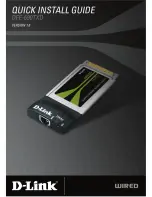
15
layers can be positioned as desired in the ‘stack’ so that the user can
create any relationship he or she desires.
Modes:
There are three modes of operation: Switcher, Independent
and Dual Picture in Picture (Dual PIP). In Switcher mode, inputs and
manipulations are shown on one output immediately and transferred to
the second output when a ‘Take’ button is pressed. In the Independent
mode, input selections and manipulations are made to appear on the
two outputs independently yielding two separate signal paths. In the
Dual PIP mode, the functionality of both processors is combined to
provide two Picture in Picture windows. The outputs are comprised of
the same signals but different key and fade values can be set for each
of the unit’s outputs.
Processor:
Refers to the CORIO®2 processing engine within the unit
of which there are two. Each is able to scale, shrink, zoom and adjust
the selected input source.
Outputs:
There are two output channels provided, each channel
comprising of a DVI-D, RGBHV, Composite, and YC output. The
function of each output channel depends on the mode of operation
selected. The user can select the output signal format as desired and
can set the signal resolution (except for PAL/NTSC signals).
Windows:
Windows are containers for the input signals. They can be
sized and positioned as required within the output window.
3.3
Device Overview
The C2-7000 series provides a means for the user to select sources from the
inputs and present them to the two outputs in various ways. The imagery on
the outputs is comprised of the video layers of live (moving) video plus static
video sources such as internally stored logos and testcards.
The outputs are then further defined by the operational mode selected:
Switcher, Independent and Dual PIP (Picture in Picture).
Summary of Contents for C2-7100
Page 150: ......
















































